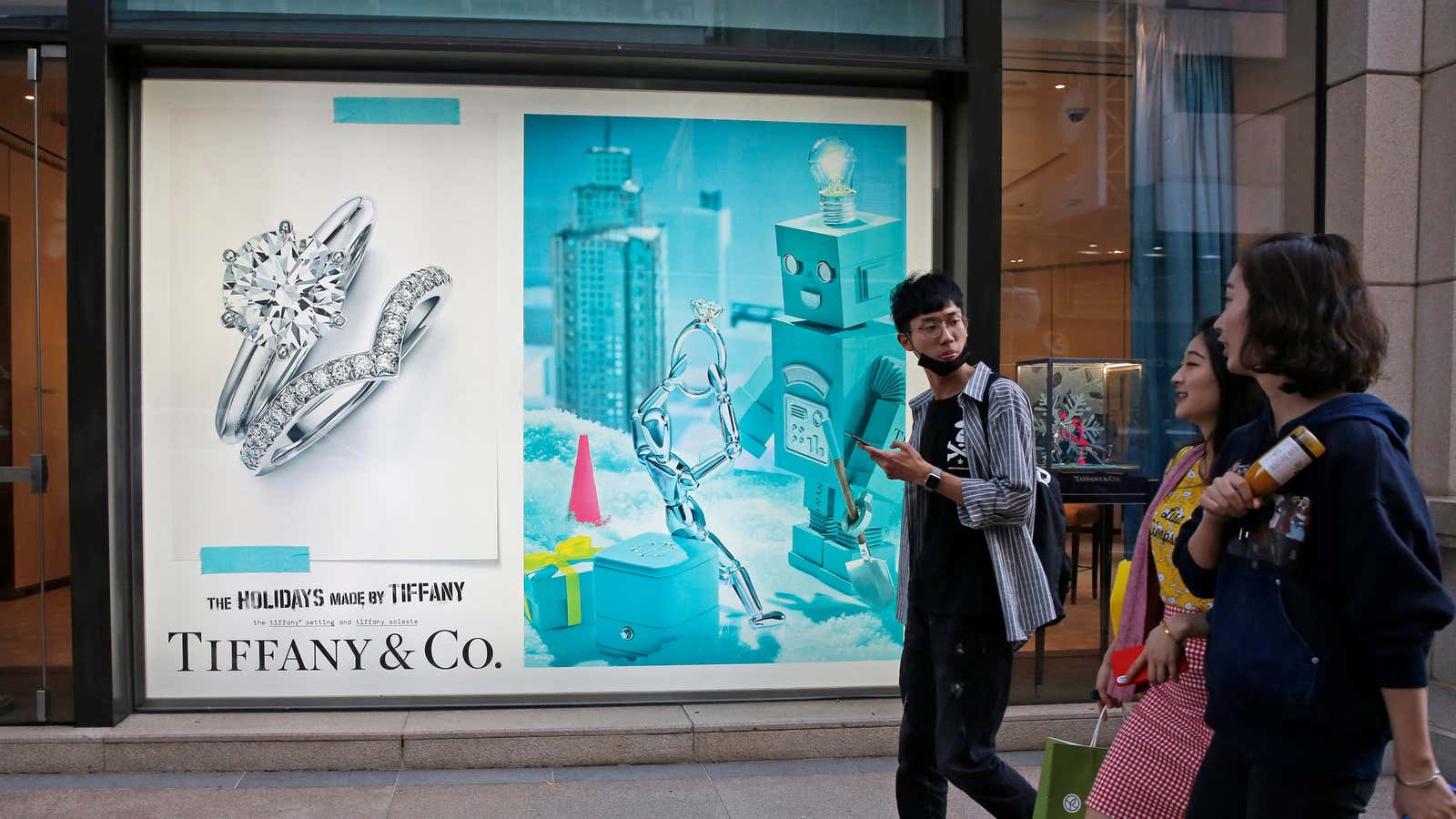When Apple slashed its sales forecast for the holiday quarter on Jan. 2, laying most of the blame on weakness in China, the news sent a shudder through financial markets. Apple’s announcement renewed anxieties about the slowdown of the world’s second-largest economy, read as a signal that the countless companies which have come to rely on China to buy their stuff should be concerned.
Some companies, of course, are more vulnerable to a waning appetite in China than others. In a Jan. 3 note to clients, stock analysts at Wells Fargo looked at more than 30 publicly listed retail brands and how exposed they are to China. Though most brands in the group got less than 2% of their sales from the country, a few stood out, with 10% or more of their sales coming from China. Included in that set were Adidas, Tiffany, Nike, Skechers, Tapestry Inc. (owner of Coach and Kate Spade), and watch brand Fossil.
The numbers, though, aren’t necessarily a guarantee of problems to come. The only thing that seems certain right now is that uncertainty will be the rule for the months ahead.
While retail sales in China are still growing (they climbed 8.1% in November over the previous year), the pace of growth has been slowing for years (paywall). The current trade spat with the US is adding new pressure. The Hong Kong government pointed to trade tensions as a reason for the territory experiencing its worst retail sales since mid-2017.
The Apple news, Wells Fargo says, “gives retail bears yet another reason to remain cautious” toward other retail brands. But it also notes that what happened to Apple “might not be 100% applicable” to all of the brands with China exposure. Sneakers and clothing aren’t iPhones, and the companies themselves have said that what they’re experiencing in China is mixed. Nike CEO Mark Parker, for instance, recently told analysts that Nike’s growth in China is still accelerating, and that the company has not seen any impact thus far from the US-China trade dispute.
Kasper Rorsted, the CEO at Adidas, said on a November call that Adidas’s China sales were growing strongly. He did say he expects growth to slow in the next quarter, but it was owing more to the fact that Adidas has been growing at such a fast rate there that it had to moderate eventually. He did not call out any issues with China’s economy.
On the other hand, Manny Chirico, CEO of PVH Corp., which owns brands such as Tommy Hilfiger and Calvin Klein, said in November that while the company’s Chinese business was looking strong, it was seeing “some softer trends in traffic relating to a softening economy and the related trade concerns between China and the US.” Tiffany, meanwhile, noted when it reported results a few weeks back that sales in mainland China were good, but sales to traveling Chinese shoppers were down.
The months ahead could change these perspectives, of course. But however the situation in China plays out for individual brands, it’s clear that any company getting a large share of its sales from the country is watching closely.
